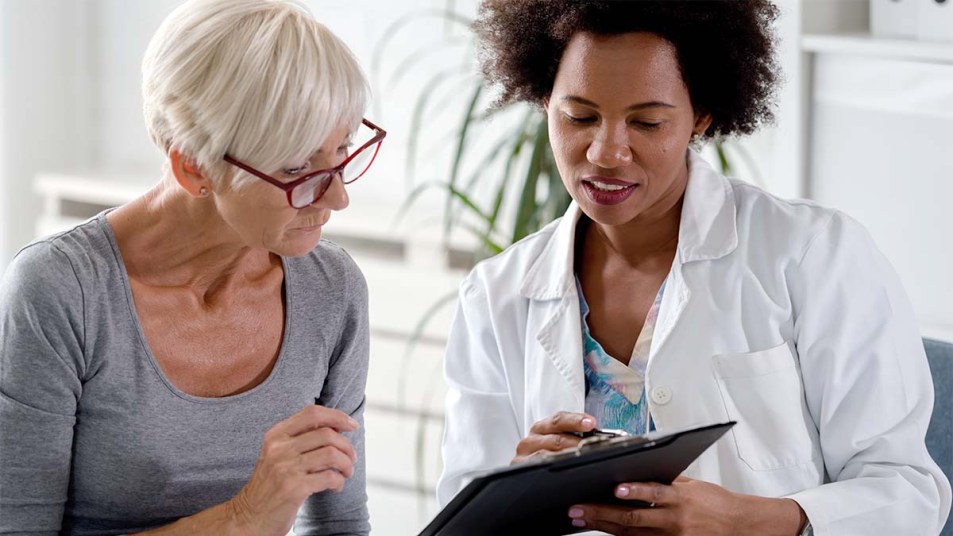Post-Breast Cancer Diagnosis, Remodeling Your Diet Is Critical To Aiding Your Journey
It can play a role in healing your body from the inside out.

Each year, hundreds of thousands of women receive a breast cancer diagnosis — apart from skin cancers, it’s the most common cancer among US women. This year alone, the American Cancer Society (ACS) estimates that 297,790 new cases of invasive breast cancer will be diagnosed. For the women who receive these diagnoses, lifestyle considerations that are important even when in perfect health will become vital. Foremost among these considerations is maintaining a balanced diet comprised of vitamin- and nutrient-rich foods. (These are crucial for supporting bodily functions and stabilizing energy levels during chemotherapy and radiation treatments.) Keep reading to learn more about why it’s imperative to reconstruct your diet after a breast cancer diagnosis.
How does diet play a role in your breast cancer journey?
In general, healthy eating habits promote longevity, strengthen bones, and boost immune function. While maintaining health through a balanced diet is important for anyone, it’ll become especially necessary following a breast cancer diagnosis. The disease takes a toll on both the body and the appetite, but eating foods rich in vitamins and minerals can help provide you with the required energy and sustenance to persevere.
According to the National Cancer Institute, cancer and its treatments — including chemotherapy and radiation therapy — will often affect a person’s ability to taste and consume adequate amounts of food. These treatments may result in malnutrition, a condition wherein your body isn’t receiving enough nutrients, as they can trigger side effects such as nausea, diarrhea, and vomiting — all things that make it difficult to eat.
Adjusting your diet after receiving a breast cancer diagnosis is therefore critical in order to help you feel your best. Plus, even if you haven’t received a diagnosis, a healthy diet can play a role in lowering your risk for chronic disease, including breast cancer.
What foods should you enjoy or avoid after a breast cancer diagnosis?
Oncology dietitian Lisa Statner, MS, RDN, agrees that a nutritious diet is vital when responding to a breast cancer diagnosis. “Food is an important part of quality of life, but during cancer treatment, it’s helpful to think of food as another part of your healing regimen,” she told KeckMedicine.org. Here are Dr. Statner’s recommendations for evaluating your diet after a cancer diagnosis:
- Set up a nutrition plan before treatment. Statner encourages women to allow a registered dietitian to perform a comprehensive nutrition assessment before starting cancer treatment. “During this assessment, we evaluate your nutritional status, or how your body is absorbing and using nutrients, at the time of your cancer diagnosis,” she explains. “This evaluation also includes looking at your age and any preexisting conditions, like diabetes or malnutrition.” Ultimately, this assessment allows both you and the dietitian to understand your nutritional needs prior to undergoing treatment.
- Eat the rainbow. Statner suggests eating colorful fruits and vegetables like blueberries and red bell peppers as they’re rich in antioxidants, which are reported to have anti-inflammatory benefits. Eating plenty of protein-rich foods like yogurt, chicken, and lentils helps prevent sarcopenia (or muscle loss) which can occur as a result of cancer or cancer treatment. Statner also suggests keeping your calorie and protein needs in mind. “Try to eat foods that are high in calories and/or high in protein but smaller in volume, such as avocados, peanut or almond butter and honey,” she suggests.
- Stay away from contaminated foods. Certain cancer treatments such as chemotherapy and radiation may negatively affect your immune system, and can increase your risk of infections. Statner says avoiding contaminated foods that can expose you to bacteria is imperative. Doing so requires washing all your fruits and vegetables before eating. Additionally, ensure that meat, seafood, poultry and eggs are thoroughly cooked. “Good food safety practices are important during cancer treatment. Don’t leave anything to chance,” she notes.
The Bottom Line
These helpful eating tips offer food for thought, especially after being diagnosed with breast cancer. While there is still no “cure” for breast cancer, treatment can help prolong and improve your quality of life. (Relative survival rates depend on whether the disease is at a localized, regional, or distant stage. So, speak with your doctor about how those numbers could apply to you.) Incorporating healthy foods into your diet is a simple yet essential way to take matters into your hands throughout your breast cancer journey.
This content is not a substitute for professional medical advice or diagnosis. Always consult your physician before pursuing any treatment plan.












